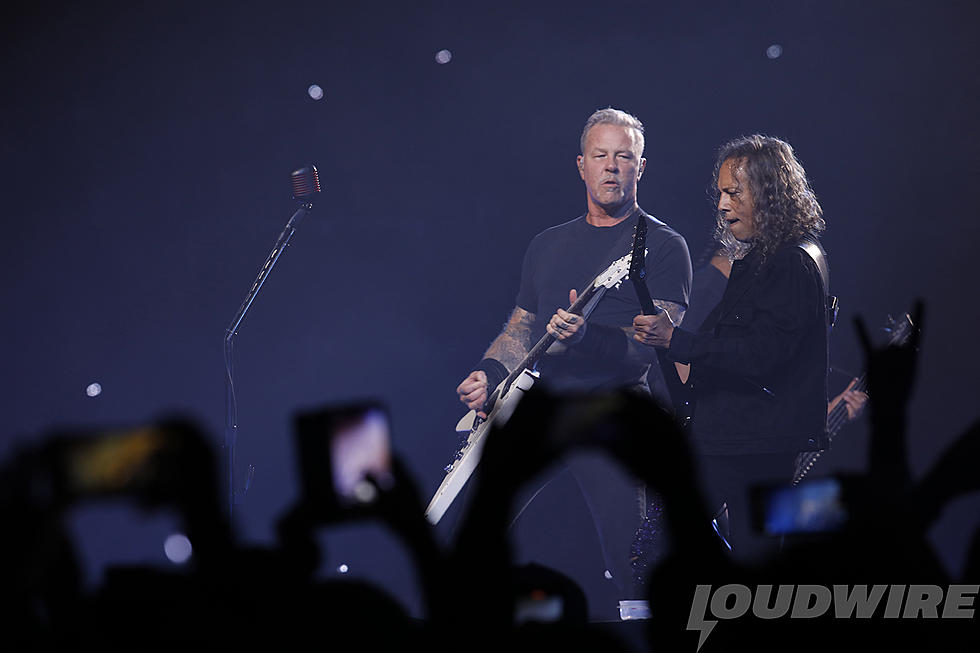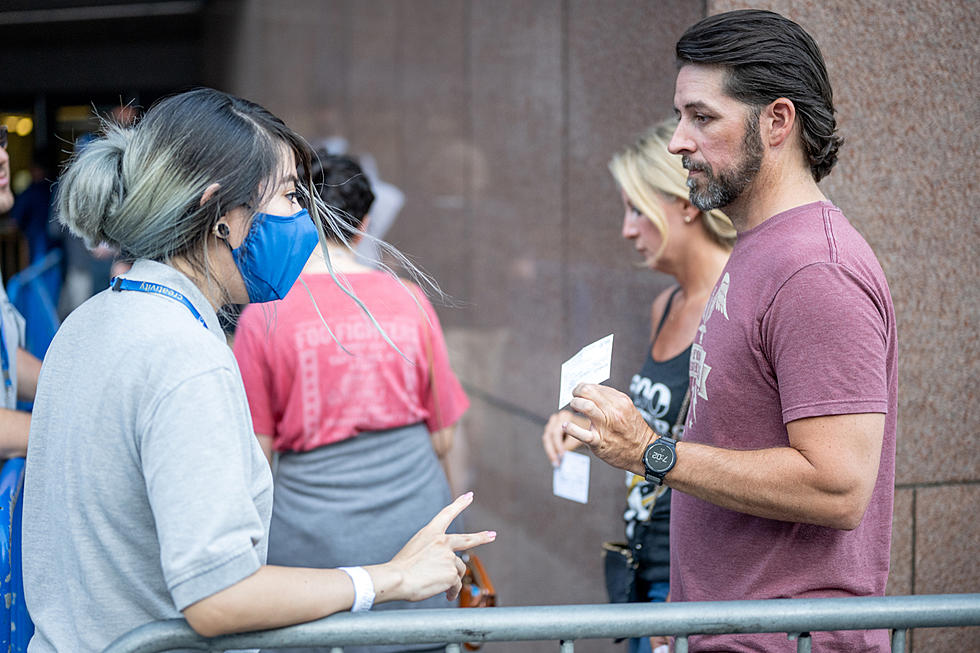
50 Years Ago: ‘A Clockwork Orange’ Makes Its Violent Debut
Stanley Kubrick's film version of A Clockwork Orange has a suitably complicated legacy. Was his linguistically inventive, ultra-violent adaptation of Anthony Burgess' novel a sobering prophecy of a modern world to come, or an empty exercise in morally bankrupt voyeurism?
The answer in each instance might just be yes.
The film follows Alex, a deranged narrator played by Malcolm McDowell, as he leads a uniformed gang of likeminded sociopaths with their own made-up language. A rampage of exuberant savagery follows before Alex is arrested on a murder charge. He ends up in prison, where heartless government-funded doctors offer parole if he becomes a test subject in an averse-conditioning program called the Ludovico Technique. The experiment involves being made to watch film clips of the evil that men do on a ceaseless loop.
Despite his penchant for criminality, Alex has a surprising regard for classical music and songbook classics. That complexity makes it easier to accept the premise that he is eventually cured. Upon his release, however, he botches a suicide attempt, and the resulting head injury reverses Alex's anti-violent conditioning.
McDowell's canny performance ties up these seemingly disparate threads, sparking deep revulsion during scenes of remorseless brutality and no small amount of emotion as Alex is revealed to be a pitiable guinea pig in an authoritarian system.
"The central idea of the film has to do with the question of free will," Kubrick later mused in an interview with Michel Ciment. "Do we lose our humanity if we are deprived of the choice between good and evil? Do we become, as the title suggests, a clockwork orange?"
Premiering Dec. 19, 1971 in New York City, A Clockwork Orange proved to be immediately controversial. The movie was banned in several countries, and widely criticized. It even sparked death threats against Kubrick. He eventually requested that the film be withdrawn from U.K. cinemas, but by then A Clockwork Orange had captured on a certain perverse fanbase of mock-thugs who dressed like Alex and his bowler-hatted buddies.
McDowell, whose virtuoso performance was so physical that he cracked bones and risked his eyesight, tried to pull away from the spectacle – while Kubrick continued to make a case for Alex.
"He is totally aware of his own evil and accepts it with complete openness," Kubrick argued in an interview with Sight and Sound in 1972. "Alex makes no attempt to deceive himself or the audience as to his total corruption and wickedness. He is the very personification of evil. On the other hand, he has winning qualities: his total candor, his wit, his intelligence and his energy. These are attractive qualities and ones, I might add, which he shares with Richard III."
McDowell ended up playing a central role in crafting the character, from the droogs' fascist-leaning codpiece suits (which were inspired by the actor's cricket outfits) to his improvisational rendition of the Gene Kelly show-tune "Singin' in the Rain" during a vicious rape scene.
"It just came out of my mouth," McDowell told NME in 2021. "It’s not that I went away thinking: 'Ah, what can I do?' I started to sing and on the beats would give her a kick and a whack, just as a sort of joke. I looked at Stanley and he literally had his handkerchief in his mouth, he was laughing so hard."
Watch the Trailer for 'A Clockwork Orange'
That followed a broader pattern on the shoot, which was filmed almost entirely on location. Kubrick largely followed Burgess' narrative, employing his invented youth-culture slang extensively in the voice over, but otherwise often gave McDowell free rein.
"So, I remember saying once, 'So, you got any ideas for this scene, Stanley.' And he just looked at me and said, 'You know Malc, that's why I hired you. I'm not a writer,'" McDowell told Collider in 2011. "With most directors you'd say, 'You have any ideas for this scene?' and you'd sit down and have a discussion for an hour and they'd come up with whatever. With Stanley? In a way he gave me the greatest gift of all. He just said, 'Show me. Make it up. Do it!' So, I did."
But that intimacy in creation also made it harder for McDowell to distance himself from the fame and furor that ultimately surrounded A Clockwork Orange.
"For the first 10 years after I made it, I resented it," McDowell told NME. "I was sick of it. I didn't want to talk about the fucking thing, I was over it. I said: 'Look, I'm an actor.' I got to play a great part. I'm moving on.' Then I came to the realization that it was a masterwork, and I was very, very much part of it. You may as well just accept it and enjoy it."
Kubrick's approach to filmmaking remained meticulous, inventive and sometimes painful. His research for potential locations involved taking thousands of photographs. To achieve Alex's point of view during his suicide attempt, Kubrick placed a camera in a box then dropped it lens first from the third floor of a hotel. McDowell's eyes were actually pinned open during the tortuous Ludovico aversion-therapy scenes, and he ended up temporarily blinded with a scratched cornea.
But Kubrick's risky choice to omit any mention of the final chapter from Burgess' original novel, in which Alex again rejects violence after discovering a newfound maturity, would come back to haunt the production. Several real-life crimes were later linked to A Clockwork Orange. Kubrick wouldn't entertain the theory, arguing that the movie asked us to look deeper into our own relationship with violence and authority. Still, its dark nihilism opened up a briefcase full of blame for opportunistic defense attorneys.
"Alex has vitality, courage and intelligence, but you cannot fail to see that he is thoroughly evil," Kubrick told Michel Ciment. "At the same time, there is a strange kind of psychological identification with him which gradually occurs, however much you may be repelled by his behavior. I think this happens for a couple of reasons. First of all, Alex is always completely honest in his first-person narrative, perhaps even painfully so. Secondly, because on the unconscious level I suspect we all share certain aspects of Alex's personality."
Besides, McDowell argued, the real world was – and, sadly, often still is – far more disturbing than anything in their script.
"There was more violence on the news," the veteran actor told NME. "It was the time of Vietnam. If you wanted to see real violence and you wanted to see babies being burned with napalm, turn on the news. Clockwork Orange was more psychologically disturbing: Big Brother, the government, dictating behavior – and that's fascism, isn't it?"
The Best Horror Movie From Every Year
25 Interesting Rock Movie Facts
More From 96.3 The Blaze







![[WATCH] Montana State Shares Hype Video Ahead of Playoff Game](http://townsquare.media/site/15/files/2021/12/attachment-Montana-State-Bobcat-Football-Playoffs.jpg?w=980&q=75)


